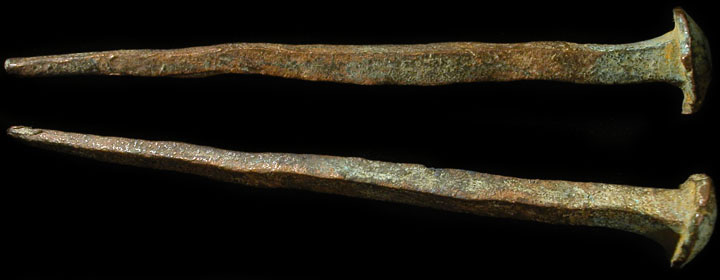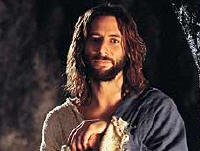Justice Miscarried
"He was beaten, he was tortured,
but he didn't say a word.
Like a lamb taken to be slaughtered
and like a sheep being sheared,
he took it all in silence.
Justice miscarried, and he was led off—"
Isaiah 53:7-8a (Message)
He has to be God in the flesh. Has to.
Beaten and tortured and... He took it all in silence...not a word.
Not a word of complaint, or trying to justify Himself.
no cries of, "you've got the wrong guy! I've done nothing wrong!"
None of it.
And all in light of justice miscarried.
justice miscarried.
This should be a gut-wrenching statement. It should cause us to cry, "no!"
It means that fairness, rightness, what legally and logically "ought to be" is cut short, is disregarded, is thrown out the window.
It is tragedy
It used to be just a phrase to me, but I understand this phrase so much better now.
2 years ago in February we went through the agonizing
miscarriage of our third child.
It began slowly and there were quasi-reassurances that things would probably be OK.
But I remember the turning point as clear as if it were yesterday:
Getting the call from my wife during a worship team practice. "We need to go the hospital - right now."
Waiting what seemed an eternity to be called into an ER room, having Nurses and Doctors dismiss my wife's experiences.
"You haven't lost that much blood - you just think you lost more than you did"
Being 'released' and watching my wife pass out in the hallway (due to blood loss).
Getting her admitted for the night... going home without her and weeping uncontrollably as I hugged my in-laws back home, not knowing for certain what was to come.
Getting back to the hospital to learn my wife required 4 pints of blood - this was not a 'normal' miscarriage.
Learning that we had lost this child and being heartbroken again.
'no. no. please God, no.'
'why....?'
And well meaning nurses and doctors saying, "miscarriages happen all the time." And trying to reassure us that we could get pregnant again.
They had no idea.
We had struggled with infertility after our son was born, and here 7 years years later, a miracle!
And then ten weeks later this crushing heart-break. hope dashed and lost.
'why....?'
Leading worship at church 4 days later was one of the hardest things I've ever had to do. And God continues to bring us through the healing process emotionally, spiritually, and for my wife even physically.
Isaiah tells us that justice was miscarried for the servant of God - the Christ. And, rightly understood, all the agony and gut-wrenching that came with our miscarriage pales in comparison to what happened there.
The perfect Son of God who had only ever brought love, compassion, grace and truth was slandered, beaten, tortured, flogged with a cat-o-nine-tails, mocked, spat on, crucified. The Innocent condemned.
'why God, why is this happening?'
The miscarriage of justice for the Christ is infinitely worse than what happened to us
because He got what I rightly deserve. It was no fluke or bad biological processes - no 'accident'.
And did He sulk or complain or try to persuade the Romans He was innocent?
When beaten and flayed, "He opened not His mouth", "he took it all in silence"
Could a mere human do this?
If it was a mere human , if it were me, you can bet I wouldn't be silent. From pleading my case to screaming in agony over that torture, I can guarantee you, I would not be silent.
The night before, in the Garden, He definitely asked the Father to take the cup away:
'Father, if you are willing, take this cup from me..'
- but ended with "yet not My will, but Yours be done."
He knew full well what was in store. And He chose to go anyway.
Yes, the reason was ransom of us - but let's not make the cross simply all about us.
The agony of miscarriage is that the heinousness of our sin demanded the cross - demanded the miscarriage; that the innocent be counted as a death-penalty criminal.
Our hearts should break over what we did to Him.
Our hearts should be rent at the knowledge of the cost of the cross and the miscarriage that happened.
But equally, our hearts' sorrow is mixed with awe, adoration and yes, even joy over the fact that God's heart is so much purer than ours and that this miscarriage does not lead to hope dashed - but hope assured, hope solidified, because through it we are ransomed back to God by the hand of God through the Son of God.
What a God this is!
"Alas and did my Savior bleed
And did my Sovereign die
Would He devote that sacred head
For such a worm as I
Was it for sins that I had done
He hung upon the tree
Amazing pity, grace unknown
And love beyond degree!
My God why would
You shed Your blood
So pure and undefiled
To make a sinful one like me
Your chosen precious childWell might the sun in darkness hide
And shut His glories in
When Christ the mighty Maker died
For man the creature’s sin
Thus might I hide my blushing face
While His dear Cross appears
Dissolve my heart in thankfulness
And melt mine eyes to tears"
Music and chorus lyrics by Bob Kauflin
Lyrics by Isaac Watts
© 1997 Sovereign Grace Praise (BMI).










